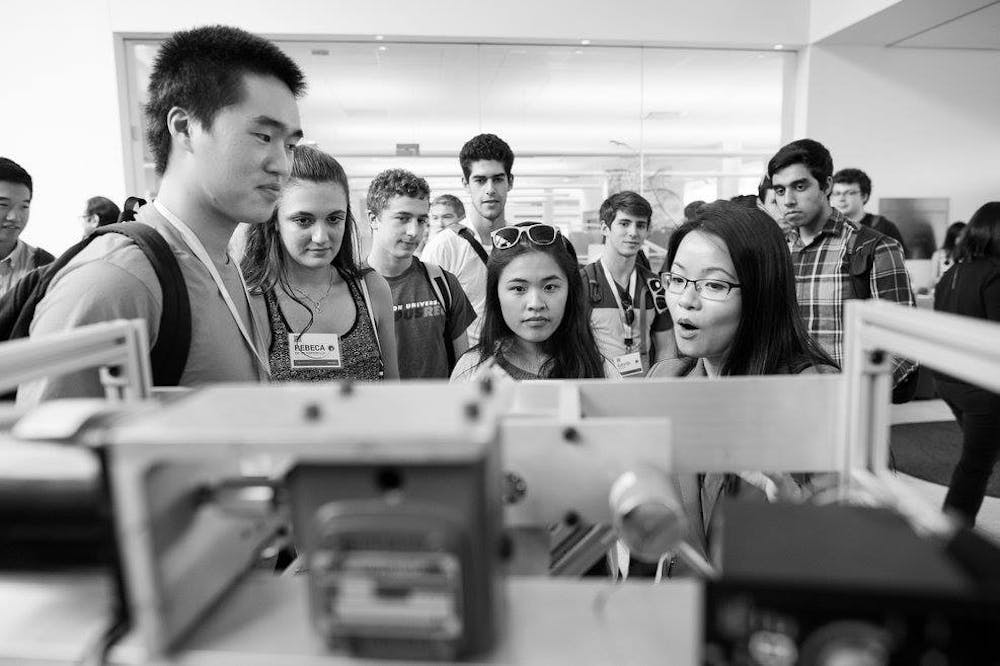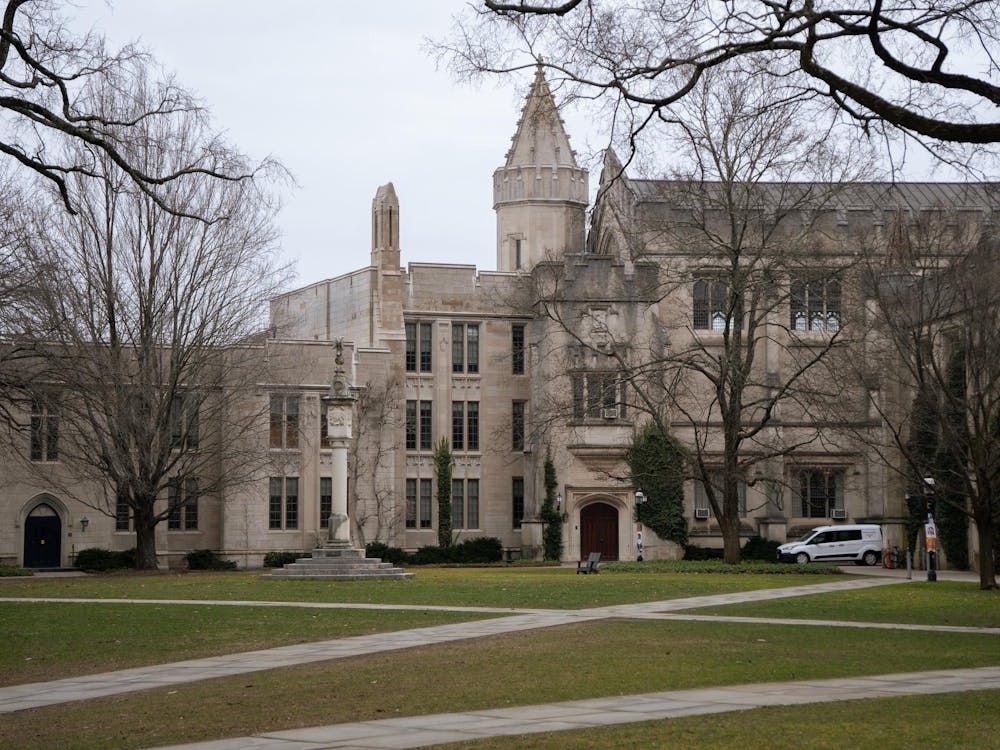The Keller Center for Innovation in Engineering Education’s newly created entrepreneurship certificate may at first seem like an example of Princeton University’s contradictory approach to education. After all, as a liberal arts institution, the University has consistently been averse to establishing courses with a vocational tilt. It has no law school, no medical school, and no business school. Shouldn’t an entrepreneurship certificate with course offerings like “Entrepreneurial Leadership” and “High-Tech Entrepreneurship” be considered a form of vocational training? As it turns out, not quite.
Back in May 2015, the Princeton Entrepreneurship Advisory Committee issued a report which recommended an enhanced presence of entrepreneurship at the University. The University responded affirmatively to this request to establish an “Entrepreneurship Council” and an “Entrepreneurship Hub” last year and an entrepreneurship certificate.
PEAC defined entrepreneurship at Princeton in an innovative way, arguing that it could further the University’s existing commitment to liberal arts education. “Entrepreneurship the Princeton way should achieve the highest standard of excellence of entrepreneurial activities as a service to the nation and all nations, and enhance the liberal arts education environment through the entrepreneurial mindset,” the report read.
The committee pointed out that because entrepreneurship courses are interdisciplinary, they can broaden students’ intellectual and professional interests instead of being limiting or vocational.
The certificate is offered by PEAC in conjunction with the Keller Center.
Mung Chiang, the electrical engineering professor who leads the Keller Center and serves as the chairman of PEAC, said “it’s not just about vocational training. It’s much broader and deeper than that. The kind of courses we provide and the kind of courses that we encourage students to take in their core or elective courses are not just about finance and coding, but are about understanding complex broader societal issues.”
Christopher Kuenne ’85, who currently teaches EGR 491: High-Tech Entrepreneurship and is the founder and managing director of Rosemark Capital Group, emphasized the unique interdisciplinary spin embedded within Princeton’s entrepreneurial education. Princeton’s peer institutions, such as Harvard, Stanford, Penn, Carnegie Mellon, and Columbia, “all have very impressive entrepreneurial programs and are staffing and building their undergraduate entrepreneurial education out of their business school heritage. This is because Princeton doesn’t have or will never have probably, a business school and because it’s in the unique position of being focused on the undergraduate with a balance between the humanities, engineering and science — we have a very exciting and unique opportunity to build a certificate program that draws from all three of these disciplines,” Kuenne noted.
According to Kuenne, his course approaches the mechanics of entrepreneurship by addressing questions like, “How do you grow the enterprise? And how do you fund and finance the enterprise?” before moving into the more humanistic questions related to building a business such as, “How do you lead, manage, and motivate people to follow you? And how do you create a brand that is both emotionally and rationally motivating to the consumer?”
“It’s really the sort of things you learn in Victorian novels and history classes that allow you to really understand how the humanistic urges can come together to create value through brand and culture,” Kuenne said.
Kuenne’s class includes students from a variety of concentrations, including range from predictable departments like Operations Research and Financial Engineering, but also others like History and English.
“The conversation is very rich because you have a philosophy major jumping in after a computer science major after a sociology major. I would say that the diversity of Princeton and this duality between humanities and engineering is definitely reflected in our class conversations pretty much every class,” he said.
In total, the certificate has four sets of requirements: courses, workshop, practicum, and colloquium. Five courses are required in total: two introductory courses, two core courses, and one breadth course. The intro courses are EGR 200: Foundations of Entrepreneurship and EGR 201: Intro to Creativity, Innovation, and Design Thinking. The core courses can be picked from eight options, including Kuenne’s class. The breadth course can be taken from a variety of departments including economics, history, visual arts, politics, neuroscience, and the Wilson School.

The three-to-twelve-hour workshop requirement is offered in the Entrepreneurial Hub, another result of the PEAC report.
The practicum is intended to give students real-world experience in gaining an entrepreneurial mindset via mentorship, an individual project, and a presentation. According to the Keller Center website, “the suggested model for the practicum encourages students to go through a process of customer research/empathy, hypothesis setting and testing, prototyping and deployment.” Although students are free to seek out other experiences, the University has established programs like the eLab Summer Accelerator and the Princeton Startup-Immersion Program to fulfill the practicum requirement.
The colloquium is a social space for students to “present their practicum, or a combination of their academic work and practicum, at least twice before graduation,” according to the Keller Center website.
The 2016-17 school year is the first in which the certificate has been offered, with 28 juniors and seniors admitted into the program. Chiang said the certificate students share the diversity of interest that Kuenne noted in his class. “They’re very well balanced, between those interested in commercial startups and non-profit startups. Balanced between engineering students and humanities and social science students. Balanced in gender and ethnicity. We’re proud of that great initial cohort,” he said.
Although the cap was intended to be lower for the first cohort so the Keller Center could ensure that it had enough resources and experiences to scale up, Chiang said that “we got a very strong application beyond our initial cap and decided just to extend the cap a little. Past this first year, we will go into a steady phase in which sophomores can apply in the spring. And rising juniors will get one more chance right after summer.”
Jennifer Lee ’17, the co-president of Princeton’s Entrepreneurship Club (E-Club) and CEO co-founder of the start-up Cartful, was one of the 28 students admitted. “As co-president of the Entrepreneurship Club, I've always liked the idea of building community, an aspect the the certificate is doing a good job of building. What makes the entrepreneurship certificate different and unique is the practicum component, where I got the chance to work with my co-founder, Andreas, and other Princeton students on our own startup, Cartful,” Lee said.
Andreas Dias ’17 explained that he had already "ended up doing everything for the certificate" out of personal interest. Dias has been a part of Princeton's entrepreneurial community since freshman year, working on startups, taking entrepreneurial classes, and directing teams in the E-Club.
Lee said she would have fulfilled the certificate requirements anyways as well, “because of not only my interest in entrepreneurship, but also their amazing reviews.”
It’s worth mentioning that almost all of the certificate’s courses received course evaluations above four out of five. Kuenne’s course, consistently rated above 4.5/5.0, is in such high demand that a selective application process is required in order to enroll.
The quality of these courses is probably what created such a high volume of applications. In terms of the certificate’s development, Chiang remains focused on the near future. “We’re still early in the process, we’re less than three months into the first certificate. Let’s keep gathering data and evaluating, and like entrepreneurs we will pivot as needed to adjust to student needs,” he said.
Although Chiang did not give further details, the certificate is already ushering in changes for existing entrepreneurship courses. Throughout the summer and early fall, “all of the lecturers who teach the Keller Center courses came together to inventory all the courses we teach across all the content we teach to begin to identify where the holes are in the curriculum and how to begin to fill those. And then also how to teach this subject matter in a consistent way across courses,” Kuenne explained.
The resulting report was delivered to Chiang in early October. Kuenne expects that, following this report, “we will begin to launch new courses to fill some of the gaps and we will probably reshape some of the existing courses so that only two or three years from now, all the courses will fit together even more tightly than they do now and we will be able to cover this full range of content.”
When asked what sort of student ought to consider the program, Chiang said that all students, whether or not they had a background in entrepreneurship, were welcome to apply. For him, making the certificate available to students was the priority. “It’s a choice. A choice for those who want to be exposed to the mindset of a broadly defined entrepreneur. And now, for the first time, if you’re interested in exploring that, you can make that choice to explore the entrepreneurship mindset with the best liberal arts education in the world,” he said.









